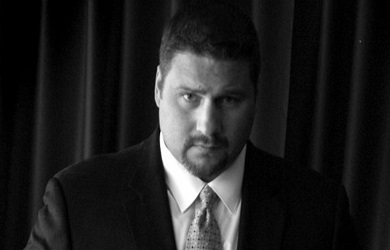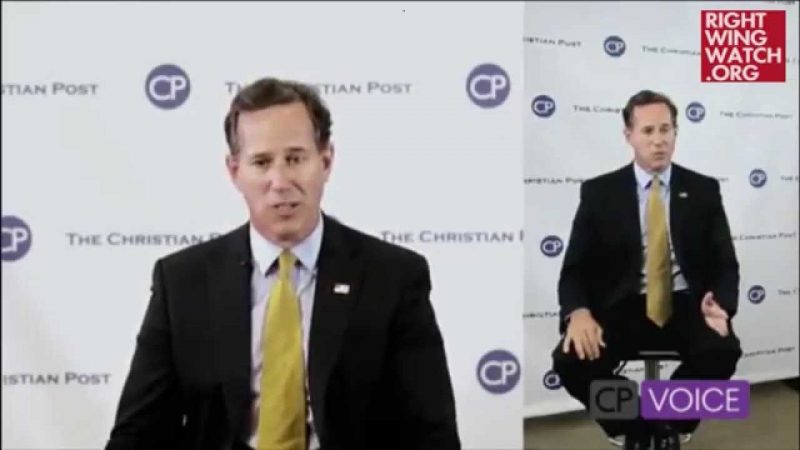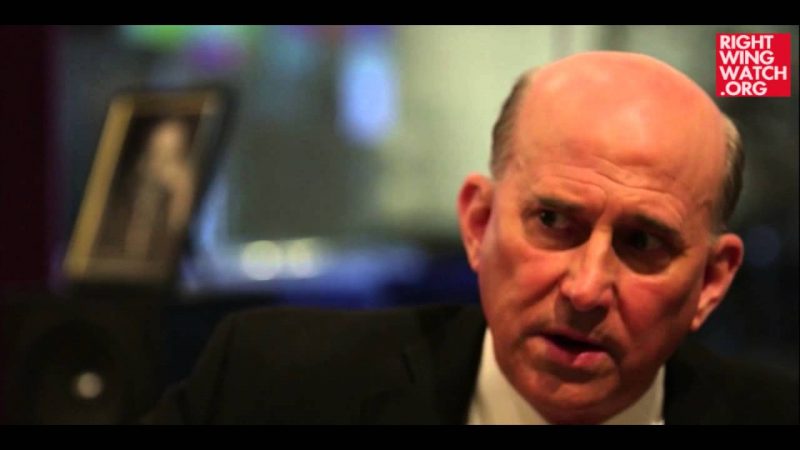Introduction
For decades, the Religious Right in the United States has used public school students as pawns in its “culture wars,” fighting to impose a political agenda on textbooks and curricula in school districts across the country. This campaign has included fights over sex education, school-led prayer, publicly funded vouchers for religious institutions, and much more. In this report, we examine recent developments in one aspect of this campaign: the fight to shape what children learn by controlling their access to books in school libraries and curricula, and the content of their textbooks.
While these efforts, which often take place at the state or local level, don’t always succeed in removing a book from a school curriculum or forcing a textbook publisher to reprint its content, they can have far-reaching negative effects. In recent years, for instance, national anti-Muslim groups have worked to rile up fear and suspicion of American Muslims. Organizing a protest of a textbook that they claim “promotes jihad” may not accomplish its stated goal, but might still succeed in stoking fear and resentment against Muslim Americans in that community.
Attacks on ethnic studies curricula or challenges to books that deal frankly with the lives and histories of marginalized communities can have similar divisive results beyond their original goals.
In recent years, new fronts have opened in the textbook wars as anti-Muslim and anti-immigrant groups fight efforts to include the experiences and identity of American Muslims and Latinos in social studies and history teachings.
These new attacks on multicultural curricula in schools are paired with continuing efforts to ban books that acknowledge gay and lesbian families, present alternatives to Christianity, or deal frankly with the history of race in America. All seek to present a definition of what it means to be American that excludes the experiences of women, people of color, LGBT people, immigrants, and others.
Banning Books in Classrooms
Throughout the 1980s and 1990s, People For the American Way tracked challenges – often backed by Religious Right groups – to books in school libraries and curricula that included frank discussions of sexuality, race, and the less palatable truths of American history. In the 2000s, challenges focused also on books accused of promoting the “occult” or undermining Christianity, leading the Harry Potter series to top the American Library Association’s list of the most challenged books of the decade.
The number of challenges to individual books in American schools has remained relatively steady over the past 10 years, according to the American Library Association, which keeps records of book challenges. The ALA reported 464 challenges to books in 2012, the most recent year for which its statistics are available.
Among the most challenged books in 2012, according to the ALA, were Sherman Alexie’s The Absolutely True Diary of a Part-Time Indian, an acerbic look at the life of a teenager growing up on an Indian reservation; And Tango Makes Three, a picture book by Peter Parnell and Justin Richardson about two male penguins who care for an orphaned egg; and the perennially challenged Beloved by Nobel Prize-winning author Toni Morrison.
In 2013, the ALA and the School Library Journal reported challenges in schools to such classics as Ralph Ellison’s Invisible Man, Isabel Allende’s The House of the Spirits, Margaret Atwood’s The Handmaid’s Tale, and even Anne Frank’s The Diary of a Young Girl.
One common theme among many of these challenged books is their frank portrayals of the experiences of marginalized people in the United States and throughout the world. Morrison’s Beloved and The Bluest Eye are unflinching explorations of being a Black woman in America. Alexie’s Absolutely True Diary chronicles a Native American teenager’s experiences living in an impoverished reservation, while going to school in a wealthy nearby town. Ellison’s Invisible Man explores African-American identity in the mid-20th century. Rudolfo Anaya’s Bless Me, Ultima, which was temporarily removed from a curriculum in an Idaho school district last year, is a landmark piece of Chicano literature. Atwood’s The Handmaid’s Tale offers a dystopian tale about the oppression of women. Marjane Satrapi’s renowned graphic novel Persepolis, which was restricted in Chicago’s schools last year, is about a girl growing up in Iran during the Islamic revolution. (Chicago students, noting that the school board was “banning a book that’s all about the freedom of speech,” eventually got the decision reversed.)
This theme was perhaps most clearly articulated in a January 2014 Eagle Forum newsletter, which objected to a fourth-grade Common Core lesson plan centered on a book called The Jacket. The book by Andrew Clements tells the story of a boy who “sees another kid wearing his brother’s jacket, he assumes the jacket was stolen,” and ultimately has to ask himself, “Would he have made the same assumption if the boy wearing the jacket hadn’t been AfricanAmerican?” Eagle Forum responded to this book by quoting an activist who said, “It’s a fun little book about racism and white privilege – a left-wing concept that teaches AfricanAmericans [that] the values of American society are designed to benefit white people.”
Another persistent theme in these challenged books is positive or matter-of-fact portrayals of homosexuality. The ALA reports that two very different books – And Tango Makes Three and Khaled Hosseini’s The Kite Runner – were frequently challenged in 2012 for their inclusion of “homosexuality.”
Sherman Alexie responded to one challenge to his young adult novel with words that could be applied to many of the books on this list: “Everything in the book is what every kid in that school is dealing with on a daily basis, whether it’s masturbation or racism or sexism or the complications of being human. To pretend that kids aren’t dealing with this on an hour-by-hour basis is a form of denial.”
Since 1982, free speech and education advocates have fought censorship with Banned Books Week, an event that has drawn the ire of some conservative groups. In 2010, Focus on the Family claimed that the American Library Association was “manufacturing a national crisis” in order to push an “anti-family agenda.”
While most of the challenges reported by the ALA came from individual parents, some Religious Right groups continue to push an agenda of censorship. Religious Right groups continue to back efforts to censor books from school curricula, a project that has merged somewhat with opposition to Common Core curricula, which often include lists of suggested reading materials. Eagle Forum, for instance, has objected to Common Core elementary school readings that deal with wind power and the impact of climate change on polar bears.
In August of 2013, One Million Moms, a project of the American Family Association, called for Toni Morrison’s The Bluest Eye to be removed from a Common Core list of 11th-grade English texts. One Million Moms director Monica Cole claimed the novel by the Nobel Prize-winning author was “no different than pornography,” and that by including villainous characters, it encouraged children to be villainous themselves. Glenn Beck’s The Blaze website also raised objections about the book.
The next month, Republican Alabama state senator Bill Holtzclaw called for the removal of The Bluest Eye from state school libraries. (As of the writing of this report, he has not been successful.)
While challenges to books in schools are not always successful, there is evidence that overall they have a chilling effect on teachers and librarians. A 2009 School Library Journal survey of 654 school librarians found that 70 percent had decided not to purchase a book because of “possible reaction from parents.” Forty-nine percent reported having dealt with a book challenge in the past.
Defining History in Arizona
As noted above, a common theme in book challenges throughout the country is suspicion of books that discuss the experiences of historically marginalized groups. This tension has perhaps been most evident in recent years in Arizona, where educators continue to battle conservative state lawmakers who want to shut down public school programs that grapple with issues of race and identity.
In April 2010, just weeks after she signed an anti-immigrant bill that would essentially sanction racial profiling of Latinos, Arizona Gov. Jan Brewer endorsed another attack on the state’s growing Latino population. Brewer signed a bill that banned “ethnic studies” classes in public schools.
The bill, proposed by state schools superintendent Tom Horne, who has since become the state attorney general, was aimed at one program in particular: the Tucson Unified School District’s long-running Mexican-American studies program.
The Tucson program, which was adopted as part of a federal desegregation order in 1974, was credited by its supporters for “closing the gap in graduation rates for Latinos, and sending more graduates on to college.”
But Horne waged a years-long campaign against the program, claiming that the Mexican-American studies curriculum was “racist” and promoted “destructive ethnic chauvinism.” Horne told the BBC that he particularly objected to the fact that the voluntary courses taught students about the existence of “a white male power structure.” The curriculum, he said, reminded him of “the Old South when people were divided by race.”
In challenging the 2010 law, Horne implicitly equated the Tucson Mexican-American studies curriculum with efforts to overthrow the U.S. government and stoke racial resentment. In fact, the law prohibits public school courses that meet any of the following criteria:
- Promote the overthrow of the United States government.
- Promote resentment toward a race or class of people.
- Are designed primarily for pupils of a particular ethnic group.
- Advocate ethnic solidarity instead of the treatment of pupils as individuals.
But it wasn’t just an implicit comparison. After the law was passed, Horne claimed that Tucson’s ethnic studies program violated all four criteria. On January 1, 2011, the law went into effect. On January 3, Horne was sworn in as attorney general. Within a week, he had ordered the Tucson Unified School District to shut down the Mexican-American studies program, claiming, “It’s propagandizing and brainwashing that’s going on there.” The school district appealed the ruling, but in December 2011, an administrative judge sided with Horne and ruled that the program violated the new state law. At the start of 2012, the school board complied, shutting down the program.
That Horne’s push for the ethnic studies ban coincided with his campaign for attorney general may not have been a coincidence. Both Horne and John Huppenthal, his successor in the schools post, used the ethnic studies ban as fuel for their 2010 campaigns. One radio ad for Huppenthal reassured listeners that the candidate was “one of us” and promised that he would “stop La Raza.” Horne boasted of having “ended ethnic studies in Arizona.”
Litigation around the law and the program continues on two fronts. In March of 2013, a federal judge upheld most of the ethnic studies ban, but held that its prohibition on courses designed for specific ethnic groups was “unconstitutionally vague.” While the judge found that the law’s detractors were unable to “establish a constitutional violation” in the rest of the law, he noted that public debate about the measure “may be viewed to spark suspicion that the Latino population has been improperly targeted.” He also acknowledged that Horne’s “single-minded focus on terminating the program” and “decision not to issue findings against other ethnic studies programs is at least suggestive of discriminatory intent.” The decision has been appealed to the Ninth Circuit Court of Appeals.
But at the start of the 2013 school year, Tucson revived a version of the Mexican-American studies program, termed “culturally relevant” studies, in response to a separate decades-long desegregation battle. Since 1974, the Mexican American Legal Defense and Educational Fund (MALDEF) has been fighting in federal court to end segregation and improve educational outcomes for Latino and African-American students in Tucson; in fact, it is this same desegregation battle that led to the creation of the Mexican-American studies program in the first place. In February 2013, a federal judge ruled that Tucson “had not acted in good faith” in addressing “ongoing segregation and discrimination,” including “physical segregation and unequal academic opportunities.” The judge ordered that the school district implement a number of measures, including implementing courses on Mexican-American and African-American history and culture. Horne had previously unsuccessfully attempted to insert the state into the desegregation case and has appealed his bid to be involved.
In October, seven books – all but one by Latino authors – were returned as “supplementary” materials to school curricula.
Inflaming Fears of American Muslims
ACT! for America Takes on Textbooks
In December of 2013, the Alabama State Board of Education delayed a vote to approve 12 middle school history textbooks when two conservative groups claimed that the books “proselytize[d] for Islam.” The groups behind the challenge were the state chapter of Eagle Forum – the Christian Right group led by Phyllis Schlafly – and ACT! for America, a national anti-Muslim group that has been launching challenges against textbooks throughout the country.
ACT! for America was started in 2007 by Brigitte Gabriel, a Lebanese Christian who has found success as a pundit by warning of the “secret Islamification” of the United States.
According to a 2011 New York Times profile:
“America has been infiltrated on all levels by radicals who wish to harm America,” [Gabriel] said. “They have infiltrated us at the C.I.A., at the F.B.I., at the Pentagon, at the State Department. They are being radicalized in radical mosques in our cities and communities within the United States.”
Through her books, media appearances and speeches, and her organization, ACT! for America, Ms. Gabriel has become one of the most visible personalities on a circuit of self-appointed terrorism detectors who warn that Muslims pose an enormous danger within United States borders.
…
She presents a portrait of Islam so thoroughly bent on destruction and domination that it is unrecognizable to those who study or practice the religion.
The staple of Gabriel’s activism is conflating radical Islam with the Islam practiced by millions across the globe. In a 2007 speech, Gabriel argued that Muslims should not be allowed to serve in public office because a “practicing Muslim, who believes in the teachings of the Koran, cannot be a loyal citizen to the United States of America.”
Gabriel claims that the U.S. government has already been “infiltrated on all levels by radicals who wish to harm America.” She has also warned that Muslim Students’ Associations are waging “a stealth jihad against America through the indoctrination of our youth on college campuses.” She alleges that Mexican drug cartels are working with Islamic terrorists, citing as evidence that beheadings are “strictfully [sic] an Islamic signature.”
Gabriel has succeeded in building out a large grassroots organization, which she claims has 875 chapters and 279,000 members. She has done so with support from allies on the Christian Right, exemplified by her hiring of a former Christian Coalition official to build out her field operation.
Gabriel and her group came to fame by pushing so-called “Sharia law bans” in conservative states – measures that hype a nonexistent problem (American courts adopting Islamic law) in order to push anti-Muslim sentiment and fear.
Textbook Challenges
In recent years, ACT! has moved into the textbook wars, encouraging its members to launch challenges against history and social studies classes that the group deems insufficiently critical of Islam. In 2010, Gabriel set the stage for this effort by warning that public schools were secretly converting children to Islam and preparing them to turn against their country: “What they’re doing is literally brainwashing our students to prepare them to turn against our own soldiers and our own military and government by basically feeding them the talking points of al-Qaeda.”
In 2011, an ACT! news report asked, “Is your child’s classroom becoming a recruiting ground for Islam?,” a question answered by a Florida parent who was concerned that her child’s textbook included information about Islamic architects and mathematicians. Sarasota ACT! chapter leader Rich Swier, who had previously warned of the “extinction” of white America, declared that the textbook in question was “anti-American.”
The next year, ACT! released a 200-page “national textbook study” called “Education or Indoctrination?,” which examined 38 middle and high school textbooks and found a “pattern of historical revisionism, omissions and bias” in passages dealing with Islam and accused publishers of omitting references to Islam’s “ongoing struggle with Western tradition and its intrinsic anti-Semitism.” The group then mailed its report to 70,000 state and local school boards.
ACT! touted its efforts to its members, saying, “Hitler, Stalin, and Mao all understood that the most effective way to perpetuate their ideologies was to control what was taught to the children.” Gabriel insisted in a speech in February 2013 that “what we are seeing in public schools today is basically the talking points of our enemies being fed to our sixth- and seventh-graders in the name of diversity and multiculturalism.”
ACT!’s textbook efforts have so far resulted in few curriculum changes, but appear to have accomplished the larger goal of inflaming anti-Muslim sentiment in communities across the country. This rhetoric can be dangerous. The Southern Poverty Law Center notes that while “it’s not provable precisely how hateful rhetoric from public figures drives criminal violence … anecdotal evidence suggests the link is a tight one.” The group points out that anti-Muslim hate crimes soared in the wake of the manufactured “Ground Zero Mosque” controversy, just as the incidence of anti-Latino hate crimes rose as the nation was debating Arizona’s SB 1070, a harsh anti-immigrant measure.
Alabama
In Alabama, the challenge to the 12 textbooks was brought by Larry Houck, the founder of ACT!’s Birmingham chapter. According to AL.com, Houck “complained that the books dedicated more space to Islam and that sections on Islam usually have more and better photographs when compared to sections on Christianity and Judaism.” Houck also lamented to the Anniston Star that the textbooks “implied doubt about the divinity of Jesus.”
“They said ‘Jesus walked the earth teaching his ideas,’” he told the Star. “That’s just an insult.”
In a letter to the state school board, Houck asked, “Why is so much text devoted to Islam? It appears to be deliberate efforts to proselytize for Islam and this is dangerous for our younger generations?”
In January 2014, the state school board voted 5-2 to recommend the challenged textbooks; local school districts have the ultimate authority over which texts are used in classrooms. Ashfaq Taufique of the Birmingham Islamic Society expressed relief. “A negative vote on this would have sent chills through the communities,” he said. “Alabama is gaining more international business, more physicians from areas other than Alabama … and therefore rejection of these books based on this content about Islam would have been detrimental to the progress we have made to date.” Houck, meanwhile, promised to persevere.
Florida
Some of the loudest debates this year over the treatment of Islam in textbooks took place in Florida, where ACT! isn’t the only player in the game. In 2009, the Boca Raton-based Citizens for National Security released its own report alleging that textbooks used in Florida public schools “seek to foster an Islamic agenda,” and encouraging parents and teachers to challenge the mainstream textbooks. CFNS published a follow-up “teacher’s guide” in 2012.
CFNS isn’t just concerned with textbooks. Among its projects is enlisting members to “Identify ‘Islamic’ businesses, social, and religious organizations, schools, etc., throughout North America” – that is, to create a database of every Muslim-run organization in the country. It has gained support from a number of Republican members of Congress.
CFNS’s textbook playbook is similar to ACT!’s: Last year, the group’s chairman William Saxton claimed that Muslims were “terrorizing our kids” by “getting into their heads when they’re in middle and high school.”
Saxton boasts that his group, working in Palm Beach in 2012, forced the publisher Pearson to reprint a high school history textbook with changes to its descriptions of Islamic history and of the Israel-Palestinian conflict. In an email to Right Wing Watch, a representative for Pearson clarified that “Palm Beach County specified a variation on the World History curriculum and ordered and paid for a custom version of the text,” but added that “their focus was not on the balance of coverage of Islam.”
In the summer of 2013, ACT! and CFNS succeeded in creating a controversy over use in Brevard County, Florida, of a world history book published by the prominent textbook company Prentice Hall.
CFNS and local ACT! members urged the county school board to reject the book, which one activist claimed was “indoctrinating our kids to radical Islam.” In a local school news segment, a school board member who had clearly read ACT!’s textbooks report echoed the group’s attacks. The opportunity to launch a broad-based attack on Islam apparently appealed to Republican U.S. Rep. Ritch Workman, who showed up at a school board meeting to attack the book.
Then, Fox News’ Todd Starnes, who has fashioned himself as a clearinghouse of unfounded right-wing paranoia, trumpeted the book’s labeling of Muhammad as the “Messenger of God”; the full text of the passage, which is provided on Fox News’ website, makes clear that the descriptor is qualified with the phrase, “according to Muslim belief,” just as passages about Christianity are.
In the end, the Brevard County school board opted to keep the book, noting the $400,000 it had already spent on the text, but created a task force to forge “supplemental information” for teachers … a task force that included a local ACT! for America member.
The effort in Brevard County might have had minimal success itself, but the tactic caught on. In November of 2013, the Republican Party of Volusia County, Florida, citing the anti-Islam groups’ efforts in Brevard County, urged the county school board to pull the same Prentice Hall world history textbook from classes.
The chairman of the Volusia GOP, Tony Ledbetter, seemed to be on the lookout for Muslim conspiracies: Earlier that month, he had circulated a hoax report that President Obama “had launched a Muslim outreach program for American schools,” prompting a local conservative radio host to call for Ledbetter’s resignation.
Ledbetter worked with activist Rick Sarmiento to organize a rally against the textbooks; Sarmiento said that if they failed, he would “recruit student volunteers” to tear a chapter on “Muslim Civilizations” out of the book. One parent claimed that the book was “ridiculously biased” because “the whole history of Muslim [sic] is violence.”
The Daytona News-Journal compared the book’s passages describing Islam, Christianity, and Judaism. It is hard to conclude from the comparison that the textbook was promoting any religion over the others.
Excerpts from the textbook show how it describes three major religions:
“The Quran teaches about God’s will and provides a guide to life. Its ethical standards emphasize honesty, generosity, and social justice. It sets harsh penalties for crimes such as stealing or murder.”
Of Judaism, the book says early prophets “reached a strong code of ethics, or moral standards of behavior. They urged both personal morality and social justice, calling on the rich and powerful to protect the poor and weak.”
Speaking of Jesus Christ, the book says: “He extended the Jewish ideas of mercy and sympathy for the poor and helpless to include forgiveness and love for enemies.”
A local television station also reviewed the history book and found that, contrary to activists’ claims that it “relegate[d] Christianity to a footnote,” it dedicated “nearly a dozen” sections to Christianity.
The Volusia school board responded to protests with a thorough fact sheet explaining that the textbook in no way “indoctrinates” children into Islam, and devotes similar space and attention to all the major world religions:
The textbook contains 34 chapters. Christianity is referenced in seven of these chapters. A chapter on Muslim civilizations in the years 622-1629 A.D. describing the Indian, Ottoman and Safavid Empires provides information on the role of Islam. The role of Christianity in referenced in chapters covering the Greek and Roman empires, Medieval and Middle Ages Europe, the Crusades, Byzantine empire, Russia, Eastern Europe, Africa, Renaissance, Protestant Reformation and the Scientific Revolution. Other references to the role of world religions are found throughout the textbook in their historical context.
The News-Journal also noted that the rise of Christianity and Judaism was covered in a separate year than the rise of Islam in the state history curriculum.
Local high school students also responded with a petition urging the school board to keep the book. “We hope that the School Board will respect our voices in the process of education and reject voices of intolerance and censorship,” said the petition, which was signed by 500 area students.
The Volusia school board was forced to postpone its first meeting about the book when the Department of Justice raised security concerns. Ultimately, the board voted to keep the books, but Sarmiento says he’s working with Citizens for National Security to press the issue and even “take it statewide.” Ledbetter also said the county GOP was “not going to drop the issue.”
In December, apparently catching wind of the effort in Brevard and Volusia counties, the Republican Party of Marion County, Florida, challenged the same textbook, apparently at the behest of school board member Nancy Stacy. Stacy also objected to an additional sixth-grade textbook that contained a section that lumped together the story of the creation of man in Genesis with folk tales and myths from other cultures. “I really don’t think my religion is a myth,” she told a local newspaper. “This myth thing and religion is very, very concerning to me.”
Tennessee
Also in 2013, the Tennessee State Board of Education, in response to protests from ACT! and its allies, opted against adopting new social studies textbooks. Along with complaints about the textbooks’ depictions of Islam, state Tea Party activists objected to passages that taught children (correctly) that “early colonists were intolerant of religious beliefs that did not quite conform to (their own)” and another that “the Democratic Party (after the 1950s) … advocated racial integration and other civil rights policies that drove white, Protestant, Southern voters who opposed these initiatives away.”
Tennessee is now considering a bill that would give state legislators more power over the textbook approval board.
Texas
In May 2013, Texas’ board of education made a similar move, announcing that it would end an online curriculum used by 70 percent of the state’s school districts, in part because of what critics claimed was a “progressive pro-Islamic curriculum” and an “anti-American agenda.” A review of the curriculum in 2012 had found that it in fact spent twice as much time on Christianity as on any other religion.
This came three years after the Texas state board of education passed a resolution warning textbook publishers not to present a “pro-Islamic/anti-Christian” view of history. The Texas Freedom Network went through critics’ complaints about the textbooks and found that they were “superficial and misleading.” For instance, many favorable facts about Christian history and negative facts about the history of Islam that critics claimed were omitted were actually included in the textbooks.
Not coincidentally, this effort went alongside attempts by Texas conservatives to rid textbooks used in the state of the teaching of evolution and contemporary interpretations of American history, the subject of a 2010 People For the American Way Foundation report.
Just this year, progressives and moderates in Texas were forced to fight back an attempt to insert biblical Creationism into biology textbooks used not only in Texas but throughout the country.
TFN reported at the end of 2013 that ACT! for America members in Texas are preparing more textbook challenges for the coming year.
Conclusion
What is taught in our schools matters. It is important for students, parents, and communities to view textbooks and school curricula critically, and for the debate over what is taught in public schools to remain robust.
But too often, would-be censors wish to shut down debate, or to use school curricula as political bludgeons, meant to inflame passions and gather votes. And too often, these attacks seek to scapegoat entire groups of Americans, marginalize them, and write their experiences out of history.
The textbook wars are the product of a larger, ongoing debate over what it means to be American, about who is allowed in public life, and whose stories are told when we remember our history.
We must remain vigilant as right-wing groups attempt to censor and rewrite our history, and we must continue to fight for American children’s right to read, learn, and think critically about their country’s past and its future.








